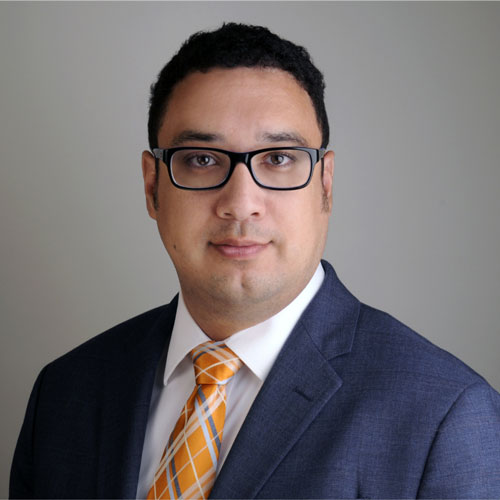Criminal Lawyer Who Practices in Ontario and Quebec
For many of my clients, being involved in the criminal justice system is a one-off, one time thing. I represent them for several months (or even years) and we close the case, usually in a successful manner.
But I also have a number of clients who have been ‘repeat customers,’ or clients who have multiple cases open at once. In these circumstances, the reach of the Crown and police isn’t always limited to one city or even one province.
My practice is different than many lawyers’ in that I routinely appear in Courts outside of my home jurisdiction. I am based in Ottawa but I have cases and meet clients in Brockville, Cornwall, Pembroke, Kingston and Toronto (and many GTA Courts). But I also practice regularly in Gatineau, St-Jerome, Montreal and Valleyfield, Quebec.
Clients Looking for a Lawyer Who Goes on Both the Quebec Side and Ontario Side
In order to practice law a person needs to be a member of the Bar (or “Law Society”) of the specific province. Most lawyers are members only of one provincial Bar and thus can only practice in one province. Some lawyers occasionally practice in other provinces but they are limited to a certain number of hours or cases and may not know the local rules as well as local lawyers.
At David Anber’s Law Office, I am the lawyer who is a member of both the Ontario Bar (Law Society of Ontario) and the Bar of Quebec, as what is called a Canadian Legal Advisor. This means I am a full member of the Bar in Quebec (Barreau du Quebec) but restrict my practice to cases involving federal penal statute (such as the Criminal Code of Canada, the Youth Criminal Justice Act and the Controlled Drugs and Substances Act).
If you are looking for a lawyer who practices in Quebec and Ontario, one of these scenarios might apply to you:
- You picked up an impaired driving case in Ontario and then another one in Quebec;
- You have an ongoing case in Quebec and then are in Ontario when it is alleged you breached your conditions;
- You were found guilty of an offence in one province and might be appealing the case, but while appealing you are charged with breaching your probation in the other province;
- You have two totally different files
David Anber is the criminal lawyer for Ottawa and Gatineau cases
The National Capital region (Ottawa, Hull / Gatineau etc.) has a large concentration of people who live and work near the Quebec/Ontario border. In fact, many residents of Ontario work in Quebec and some residents of Quebec work in Ontario. Even if you don’t work in a different province from where you live, people in the Ottawa area frequently cross back and forth from Ontario to Quebec regularly.
For example, did you know: if you get charged with a drinking and driving case in Ontario and you have a Quebec licence (or if you get charged in Quebec and you have an Ontario licence) any administrative licence suspension (where you haven’t been found guilty of anything) applies only in the province where you were charged? If your licence is from another province, other than where you are charged, the administrative driver’s suspensions (ADLS) does not apply in the other jurisdiction. This may be a bit complicated so ask us if this situation applies to you.
Toronto to Montreal?
Another scenario I frequently see involves people who get charged along highways, either with criminal driving offences, drug offences, breach offences or sometimes domestic offences where the couple have a long-term relationship.
Highway 20 in Montreal becomes the 401 and cuts through many of the Ontario jurisdictions, including Cornwall, Brockville, Gananoque, Kingston, Napanee, Belleville, Cobourg, Oshawa, Whitby and eventually Toronto. Going the other way into Montreal passes through Valleyfield, Quebec.
David Anber frequently practices in these jurisdictions (particularly Toronto, Montreal, Valleyfield, Cornwall and Brockville).
Knowledge of Rules in Both Provinces
Having a lawyer who knows the rules of Ontario and Quebec can provide valuable insight into making the right decisions in your criminal case.
I recently had clients with the following stories:
- Mr. C pled guilty (using a lawyer who practices only in Quebec) to a driving offence in Quebec and received a three-year driving prohibition from the judge. But little did he know because he had an Ontario licence, his prior convictions meant that the Ontario Ministry of Transportation (MTO) suspended him for life. Had he known he would be suspended for life, he wouldn’t have pled guilty.
- Ms. B pled guilty (using a lawyer who practices mainly in Quebec) to a driving offence in Quebec and received no driving prohibition. She received conditions as part of a probation order that allowed her to drive to and from work. However, Ms. B only received advice about what would happen in Quebec with the SAAQ (the Quebec ministry of transport). Little did she know, she would be suspended for three years by Ontario.
Now as a Canadian Legal Advisor, I am not able to formally advise you on the provincial laws of Quebec; however, because I practice federal criminal law in Quebec I know the rules exist and I can direct you to independent legal advice on the provincial rules, or simply show you where you can find government information to ensure that, when we deal your criminal case, we are making informed decisions.
Different Culture and Local Practices
One thing I’ve noticed is that every jurisdiction does things a bit differently. The way pre-trial meetings are done differs from Ottawa to Brockville, and is much different in Toronto. Bail practices, appeal practices, strictness on some rules, liberal interpretations of other rules—every place does things according to their own local practices. In Quebec and Ontario, those differences are often larger. They’re numerous, and could take up a post of its own. Suffice to say that practicing regularly in Gatineau and Ottawa has given me experience with the judges and prosecutors on both sides of the border. I speak French, grew up in Montreal and took the Quebec (French) Civil Law Program at the University of Ottawa.
David Anber
David Anber has been a trailblazing legal practitioner since 2006. His early entry into law practice during his studies marked the beginning of a distinguished career. As a member of both Ontario and Quebec’s bar associations, David excels in defending traffic and criminal cases across both provinces. David contributes to legal discourse through articles for the Defence Counsel Association of Ottawa and the Criminal Lawyer’s Association of Ontario.

